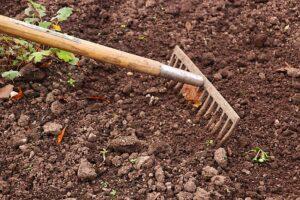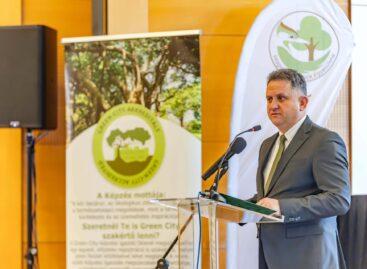A priority goal is to improve the soil condition
Improving the condition of the soil and increasing the water retention capacity is a priority policy goal, which is supported by the new Common Agricultural Policy with more tools than ever before – said Anikó Juhász, the Deputy Secretary of State for Agricultural Economy at the Ministry of Agriculture at the VII. Soil Life Conference and Exhibition.

(Photo: Pixabay)
At a two-day conference in Jakabszállás organized by the Association of Soil Regenerative Farmers, Anikó Juhász called the halting of soil destruction, the widespread introduction of regenerative farming and its application as soon as possible urgent. As he said, a number of compelling factors – the increase in fertilizer and fuel prices, climate change (floods, fires, droughts, dust storms) – justify the urgent change. The tool park of regenerative farming – the use of cover crops, reduced use of machinery and intermittent grazing – not only results in the restoration of soil life, but is also beneficial from an economic point of view. According to an international survey, the profitability of farms can increase by 50-60 percent in the fifth year of the introduction of soil renewal farming, while soil erosion is almost completely eliminated, said the deputy state secretary. In order to improve the condition of the soil and increase the water retention capacity, the new Common Agricultural Policy supports the commitment of producers with more tools than ever before: in addition to the mandatory conditionality for all grant applicants, voluntary practices (AÖP), non-productive investments (e.g. erosion protection elements), or even innovation collaborations funds can also be requested for its design. Anikó Juhász reminded: In Hungary, out of approximately 5 million hectares of agricultural land, only 5,000 hectares use the so-called soil renewal farming. While in the United States and South America, 50-80 percent of cropland is cultivated with regenerative farming, this technology is applied to just over 1% of cropland in Europe. During the past decades, the increasingly intensive large-scale industrial farming – the use of machinery, the use of pesticides and fertilizers, the sowing of high-performance hybrid varieties – did not receive sufficient attention to the load-bearing capacity and condition of our soils, and this resulted in qualitative and quantitative soil destruction. As a result, today only 20 percent of Hungary’s cropland can be called living soil. And soil health has a fundamental effect on the intrinsic value of the food produced, so soil health ultimately affects the quality of life as well – emphasized the deputy state secretary.
Farmers from the Central European region met and exchanged experiences at the regional conference organized by the Soil Renewal Farmers’ Association in Jakabszállás
Similar organizations from five countries – the Czech Republic, Slovakia, Serbia, Austria and Germany – were also represented at the event. Agricultural land is a finite resource and today we use it in an unsustainable way. Our goal is to convey our own experience to as many farmers as possible, to encourage and support them in the transition to soil renewal farming – stated Attila Szabó, president of the Soil Renewal Farmers’ Association. It is good to see that many players in agriculture have realized that this is the future. At the exhibition related to the conference, the largest agricultural machinery manufacturers presented their solutions that can be integrated into regenerative technology, and some of them also joined our mission as supporters – added Attila Szabó.
The Soil Regeneration Farmers’ Association was founded in 2018
The majority of its members are engaged in arable crop cultivation, but there are also vine, fruit, vegetable producers and animal breeders. There are organic farmers and conventional producers among them, but what we have in common is that they all use no-till technology, in different phases of the transition. The aim of the association is to adapt the system of soil renewal agriculture in Hungary and to enable it to be applied as successfully and efficiently as possible.
AM
Related news
The Ministry of Agriculture pays special attention to supporting the horticultural sector
🎧 Hallgasd a cikket: Lejátszás Szünet Folytatás Leállítás Nyelv: Auto…
Read more >








